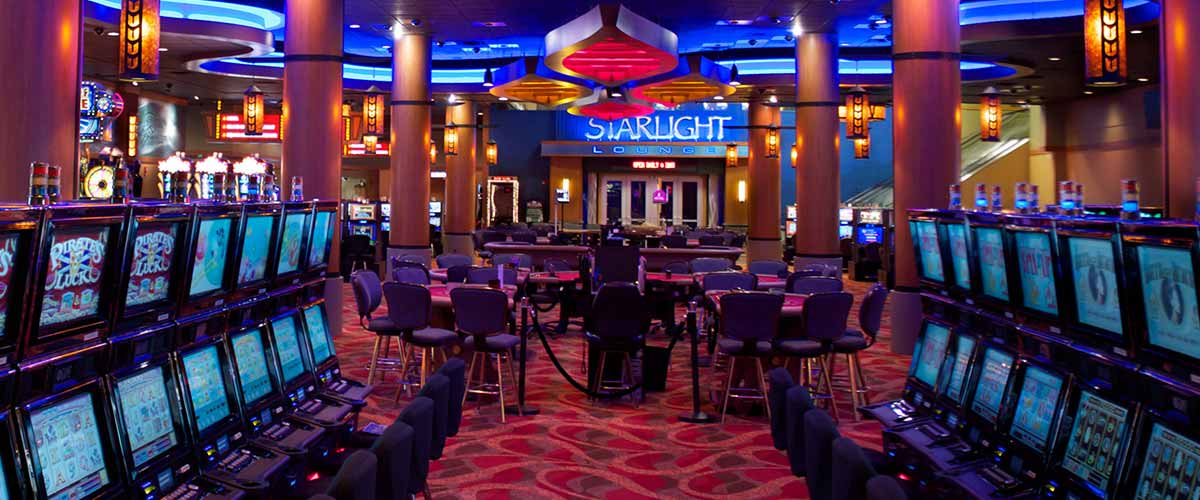
Casino experiences have long captured the interest of individuals around the globe, becoming an integral part of both fun and culture. From the glimmering lights of Las Vegas to the immersive experience of virtual casinos, these activities evoke thrill, risk, and sometimes even a sense of remembrance. They are not just just entertainments; they have woven themselves into the texture of society, influencing everything from cinema and songs to fashion and writing.
The charm of casino games transcends the wagering aspect, tapping into wider themes of serendipity, chance, and social interaction. As players assemble around a gaming table or spin the roulette, they engage in an timeless ritual that connects with our communal desire for thrill and instability. This obsession has led to the rise of countless references in movies, songs, and video games, showcasing how deeply entrenched these games are in popular culture. Whether it is the high-stakes tension of a classic caper or the vibrant nightlife portrayed in videos, casino games have established a substantial role that reflects our bond with risk.
Cultural Importance of Gambling Games
Gambling games have played a crucial role in social aspects throughout history. Originating from old societies, games of chance were often connected to rituals or events. For example, early iterations of gambling can be traced back to ancient Chinese and the Romans, where dice games and wagering on outcomes were popular pastimes. These activities not only served as entertainment but also as methods of connecting people, facilitating relationships among individuals within communities.
As societies evolved, so did the sophistication and structure of casino games. The establishment of official casinos in the 17th century, particularly in Italy, marked a significant shift in how games were viewed and structured. With specific spaces for gaming, the casino became a social hub where people from various backgrounds gathered. This change contributed to the legitimization of the industry, transforming it from a mere pastime into an organized industry that shaped economy and policy.
The effect of gambling games on mainstream culture cannot be understated. As they were popularized in literature and movies, games such as poker and blackjack became symbols of chance, luck, and tactics. Famous figures and narratives have emerged around these activities, illustrating societal views towards luck, prosperity, and vice. This fascination with casino activities has permeated various forms of media, solidifying their status in the public imagination and connecting them to wider cultural narratives throughout history.
Representation of Gambling Activities in Entertainment
Gambling games have long been a popular theme in different types of entertainment, reflecting both the excitement and intricacies of the world of gambling. Films such as Ocean’s 11 and Casino Royale portray individuals who navigate dangerous scenarios, showcasing not only the allure of the gambling environment but also the strategies and decisions that come with playing popular games like poker and blackjack. These films often dramatize the excitement of winning and the potential results of losing, encapsulating the dangers involved in betting. casinos not on Gamstop
TV programs have also explored the realm of casino games, often integrating them into the storyline as a backdrop for story progression and tension. Shows like Las Vegas depict the stories of casino workers and patrons, highlighting the vibrant, often tumultuous energy of the casino floor. Reality shows featuring high-stakes gambling competitions further emphasize the attraction of casino games, drawing viewers into the drama and strategy involved in each session. Through these representations, media not only entertains but also stimulates conversations about fortune, expertise, and the essence of randomness.
Video games have increasingly included casino games into their development, allowing players to experience the thrill of betting without monetary loss. Games within the landscape of online gaming often include online slot machines, poker, and other popular casino games, creating an immersive gameplay that mirrors real-life gameplay. These virtual portrayals make casino games accessible to a global audience, appealing to both players who indulge and those who enjoy the rush of virtual experiences. As a consequence, the representation of casino games in entertainment continues to shape societal views and cultural relevance, highlighting their function in society and social context.
Impact of Gambling Activities on Communities
Gambling activities have a significant effect on communities, affecting multiple aspects of societal norms and social behavior. They often function as a venue for community engagement, where people gather to experience a common experience. Game nights with friends or trips to casinos become group events that foster connections and create shared moments. This collective aspect enhances the fun value of casino games, making them a favored choice for festivities and recreational pursuits.
Moreover, gambling activities have been depicted in countless films, television shows, and written works, influencing perceptions and opinions towards gambling and gaming. Icons like James Bond playing baccarat or the high-stakes poker scenes in films have cemented these games in the collective imagination. This representation often idealizes the lifestyle associated with gambling, drawing in new players and influencing trends in both fashion and behavior. These portrayals can spark curiosity and lead to a more profound investigation of the nuances of gambling.
However, there are also negative implications linked to the popularity of gambling activities. The temptation of quick monetary gain can lead to problem gambling and economic troubles for some people. The community must grapple with these consequences, promoting responsible gaming and awareness of the risks involved. Balancing the entertainment value of gambling activities with the risks is crucial to ensure that they continue to be a beneficial aspect of our societal fabric.
